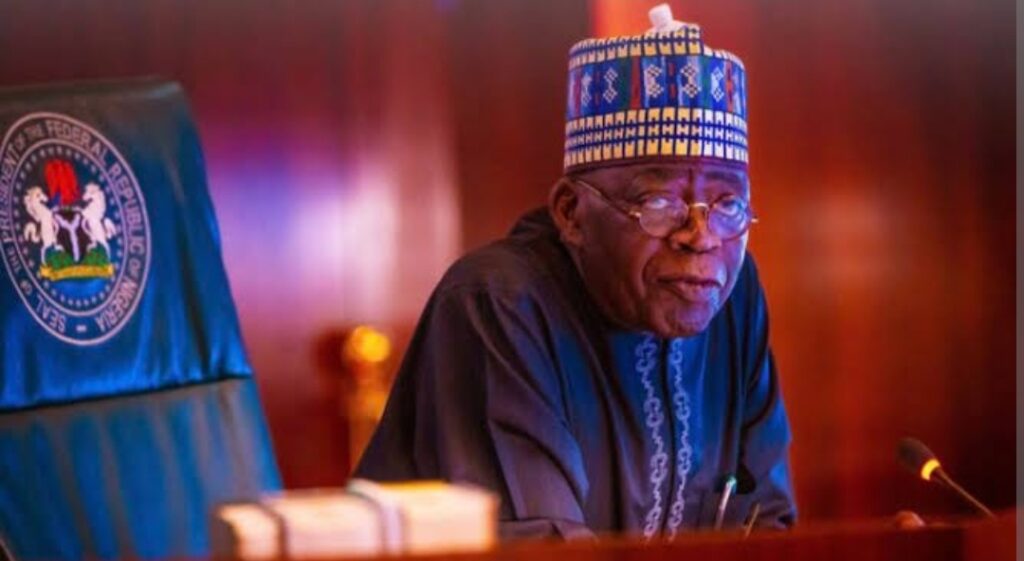The Central Intelligence Agency (CIA) has resisted pressure from investigative journalist David Hundeyin and PlainSite Founder, Aaron Greenspan, to disclose records it might have on President Bola Tinubu’s alleged drug case in the US.
The duo had initiated a freedom of information act seeking the spy agency to confirm or deny the existence of records on Tinubu’s alleged drug involvement.
Tinubu had forfeited $460,000 to the US government believed to have been proceeds of drug dealings found in two banks – First Heritage Bank and City Bank N.A.
Hundeyin had sought information from US crime agencies, including the CIA, FBI and DEA to unravel the circumstances behind the forfeiture.
However, the CIA argued that confirming or denying the matter could potentially damage US national security interests, as it would amount to betraying a human source.
The position was stated in a memorandum filed by the CIA, the Federal Bureau of Investigation, and the Drug Enforcement Administration before the United States District Court for the District of Columbia, which renowned journalist, David Hundeyin, shared on Twitter on Tuesday night.
Giving an update on the case, Hundeyin said the three US agencies had filed their defence against the summary judgment concerning President Bola Ahmed Tinubu’s drug trafficking investigation records.
The journalist wrote: ‘Yesterday(Monday) in federal court, the CIA, FBI, and DEA filed a memorandum opposing our motion for summary judgment in the FOIA disclosure case about President Bola Ahmed Tinubu’s drug trafficking investigation records, where we are seeking to have the redactions removed from the (partially released) files.
“In the filing, the CIA effectively confirmed that Nigeria’s sitting president is an active CIA asset.
An excerpt from the CIA filing reads: Human sources can be expected to furnish information to the CIA only when they are confident the CIA can and will do everything in its power to prevent the public disclosure of their cooperation. In the case of a person who has been cooperating with the CIA, official confirmation of that cooperation could cause the targets to take retaliatory action against that person or against their family or friends. It also places in jeopardy every individual with whom the cooperating individual has had contact. Thus, the indiscretion of one source in a chain of intelligence sources can damage an entire spectrum of sources. As such, confirming or denying the existence of records on a particular foreign national, like Tinubu, reasonably could be expected to cause damage to U.S. national security by indicating whether or not the CIA maintained any human intelligence sources related to Tinubu, and identifying any access or lack of access any such sources had to intelligence concerning him.”
Hundeyin added: “And if that wasn’t bad enough, the DEA’s filing included a paragraph that literally said: “We oppose full, unredacted disclosure of the DEA’s Bola Tinubu heroin trafficking investigation records because we believe that while Nigerians have a right to be informed about what their government is up to, they do not have a right to know what their president is up to.”
Hundeyin concluded: “At this point, I think there is nothing more to be said about the direct role that the US government plays in ensuring that Africa is constantly destabilised and afflicted with terrible leaders who create poverty and devastation.”
Reacting to the report, an aide to the president, Dada Olusegun, denied the claim without being specific.
He shared on X, “They told you he was a lady, you believed. They told you Yorubas don’t bear Tinubu, you believed. They told you he can’t be allowed into the US, you believed. They told you his name is not his name, you believed. Now they brought another one. Here you are as usual. Tragic.”










More Stories
Tinubu presents ₦1.481tr Rivers budget to NASS for approval
Obi debunks false report of begging Tinubu over Fidelity Bank alleged debt
IGP orders investigation into killing of 14-yr-old WAEC candidate